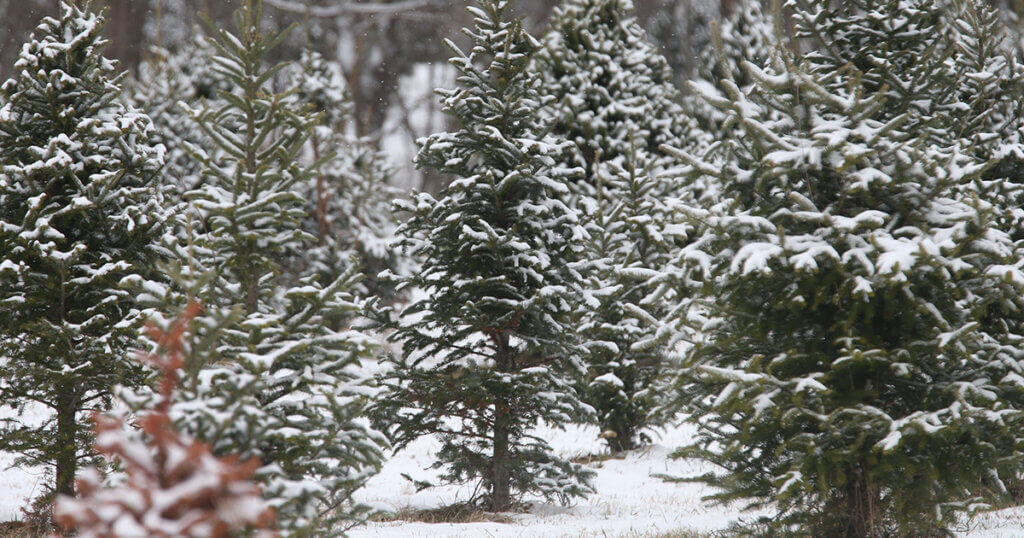Repurposing your real Christmas Tree
When the holidays are over and the needles begin to fall from your natural Christmas tree, continue to spread holiday cheer by returning your tree to nature.
Jarred Brooke, Extension wildlife specialist, and Mitch Zischke, fisheries specialist, share a few creative ways you can repurpose and recycle your tree this year.
“Before you throw your used natural Christmas tree in the trash, think about recycling it on your property. Instead of taking up space in the landfill, your tree could decompose naturally while providing cover and food for fish, wildlife or insects,” said Brooke.
No matter how you choose to repurpose your tree, make sure it is free from ornaments and decorations. Do not recycle trees that have been sprayed with “fake” snow or treated with chemicals.
 Photo by Tom Campbell
Photo by Tom Campbell Create a habitat for fish
Zischke says throwing used Christmas trees in ponds is a great way to recycle the tree and provide a fish habitat to your pond.
“The small branches provide hiding spots for small fish to escape from larger predators. Knowing that, predators will actively hunt around the tree too,” said Zischke.
If the pond is frozen with more than four inches of ice, you can drag your tree onto the ice. The tree will fall into place once the ice melts.
You should only add Christmas trees to your ponds or other private ponds with the permission of the pond owner. While they do provide great habitats for fish, they can be a nuisance for fishing as hooks and lines may get caught on branches. Zischke recommends keeping the trees away from popular fishing areas like docks.
Provide cover for wildlife
Used Christmas trees can also provide an important hiding place for wildlife. Simply placing your tree in a field or wooded area laying down will create the start of a brush pile. Teaming up with your neighbors and adding multiple trees together will create a larger brush pile with more places for wildlife to hide. Cottontail rabbits, northern bobwhite quail, songbirds and other animals will use these areas to escape from cold temperatures, snow and predators.
Brooke encourages property owners to think about the placement of used trees as they will take a few years to decompose.
Redecorate for the birds
“Another option for homeowners is to place your tree outside standing up, anchor it to the ground and decorate with birdseed ornaments,” adds Brooke.
The tree will act as cover for songbirds throughout the winter and the birdseed ornaments will provide a food source. A popular and easy birdseed ornament might include placing peanut butter and birdseed on a pinecone. As with all bird feeders, make sure there aren’t any feeding restrictions in your area.





